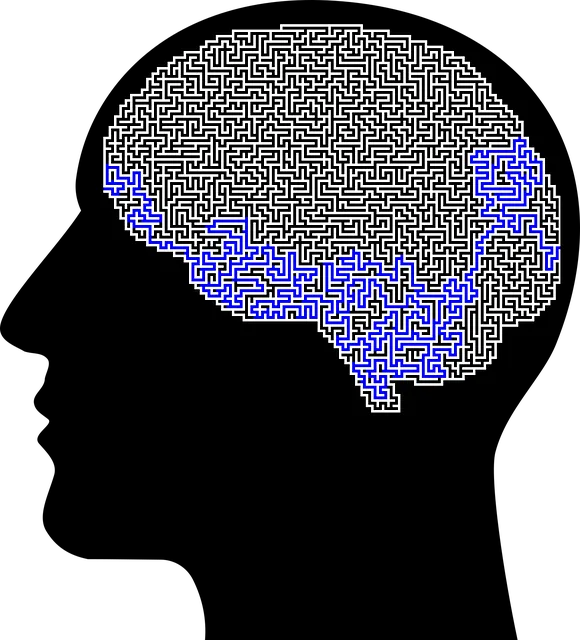The Arvada Kaiser Permanente Mental Health Center emphasizes emotional intelligence (EI) as a cornerstone of holistic well-being, aiming to create a supportive community and reduce mental health stigma. They offer programs like Stress Management Workshops to empower individuals with EI skills, fostering emotional resilience. By integrating EI into their services, the center promotes healthier relationships, improved decision-making, and overall well-being through self-awareness, crisis intervention, and coping skills development. Mindfulness meditation and community outreach are key strategies for boosting EQ, benefiting personal and professional domains.
Emotional intelligence (EI) is a powerful tool for enhancing personal and professional relationships, as highlighted by experts at the Arvada Kaiser Permanente Mental Health Center. This article delves into the foundational concepts of EI, emphasizing its significance for overall well-being. We break down key components, offer practical strategies, and explore real-world applications that demonstrate how cultivating emotional intelligence can transform interactions and foster healthier, more fulfilling lives.
- Understanding Emotional Intelligence: The Arvada Kaiser Permanente Mental Health Center Perspective
- Why Building Emotional Intelligence Matters for Overall Well-being
- Key Components of Emotional Intelligence: A Comprehensive Breakdown
- Strategies and Techniques to Enhance Your Emotional Intelligence
- Real-World Applications: How Emotional Intelligence Improves Personal and Professional Relationships
Understanding Emotional Intelligence: The Arvada Kaiser Permanente Mental Health Center Perspective

At the Arvada Kaiser Permanente Mental Health Center, we recognize that emotional intelligence (EI) is a cornerstone of overall well-being and mental health. EI involves recognizing, understanding, managing, and effectively utilizing one’s own emotions, as well as being aware of the emotions of those around us. This nuanced skill set allows individuals to build strong relationships, make thoughtful decisions, and navigate challenging situations with resilience.
Our perspective on emotional intelligence is deeply rooted in the principles of Mental Health Policy Analysis and Advocacy. We believe that promoting EI can help reduce stigma associated with mental health issues and foster a culture of support and understanding. Through various initiatives, such as Stress Management Workshops Organization, we aim to equip individuals with coping skills development strategies, enabling them to better manage stress and improve their emotional well-being. By investing in EI, the Arvada Kaiser Permanente Mental Health Center strives to create a healthier, more connected community.
Why Building Emotional Intelligence Matters for Overall Well-being

At the Arvada Kaiser Permanente mental health center, we recognize that emotional intelligence (EI) is a cornerstone of overall well-being. Beyond basic survival skills, EI involves recognizing, understanding, and managing one’s own emotions, as well as empathizing with and influencing the emotions of others. This ability to navigate complex social interactions with awareness and care is crucial for mental wellness.
Developing emotional intelligence fosters healthier relationships, improves communication, enhances self-esteem, and promotes better stress management—all vital components for maintaining a fulfilling life. In moments of crisis, individuals with strong EI can provide effective crisis intervention guidance, not only for themselves but also for others around them. By cultivating emotional intelligence, we empower ourselves to navigate life’s challenges more effectively, ultimately contributing to a greater sense of balance and contentment.
Key Components of Emotional Intelligence: A Comprehensive Breakdown

Emotional intelligence (EI) is a multifaceted concept that involves recognizing and managing your own emotions, as well as understanding and empathizing with others’ feelings. At the Arvada Kaiser Permanente mental health center, we break down EI into key components to provide comprehensive guidance.
The first component is self-awareness, which entails recognizing and understanding your emotions, strengths, weaknesses, and how they influence your thoughts and actions. This foundational aspect allows individuals to engage in Mind Over Matter Principles, empowering them to navigate challenging situations with resilience. Crisis Intervention Guidance is another critical element, equipping people with tools to respond effectively during emotionally charged moments. Additionally, Coping Skills Development plays a vital role in managing stress, anxiety, and other mental health challenges by teaching practical strategies for maintaining emotional balance. Through these interconnected components, individuals can foster healthier relationships, improve decision-making, and enhance overall well-being.
Strategies and Techniques to Enhance Your Emotional Intelligence

At the Arvada Kaiser Permanente mental health center, we believe that emotional intelligence (EQ) is a cornerstone of overall well-being. To enhance your EQ, consider implementing practical strategies and techniques into your daily routine. One effective approach is to cultivate mindfulness meditation, which helps individuals become more aware of their emotions and better able to regulate them. Regular practice can lead to improved focus, reduced stress, and enhanced empathy towards oneself and others.
Community outreach program implementation also plays a significant role in emotional intelligence building. Engaging with diverse groups and participating in activities that foster connection and understanding can broaden your perspective and deepen your ability to empathize. These experiences offer valuable insights into different emotional landscapes, enabling you to navigate interpersonal interactions with greater sensitivity and effectiveness.
Real-World Applications: How Emotional Intelligence Improves Personal and Professional Relationships

Emotional intelligence (EI) is a powerful tool that transcends both personal and professional spheres. At the Arvada Kaiser Permanente mental health center, for instance, EI is often at the core of therapeutic practices aimed at enhancing well-being. By understanding and managing one’s emotions, individuals can forge deeper connections with others, a key benefit in all aspects of life. Whether it’s listening attentively during conversations or expressing empathy, high EI fosters an environment of trust and understanding, strengthening interpersonal relationships.
In professional settings, emotionally intelligent individuals excel at resolving conflicts, building teams, and motivating colleagues. They are adept at perceiving and respecting others’ feelings, leading to improved collaboration and productivity. Additionally, EI plays a pivotal role in stress reduction methods and resilience building, enabling people to navigate challenges more effectively. Mental health awareness is significantly heightened among those who possess high emotional intelligence, allowing them to recognize signs of distress in themselves and others and take proactive measures for better mental health.
Emotional intelligence, as understood by the Arvada Kaiser Permanente Mental Health Center, is a powerful tool for enhancing overall well-being. By recognizing and managing our emotions, we can foster healthier relationships both personally and professionally. Through a comprehensive understanding of key components like self-awareness, empathy, and social skills, individuals equipped with high emotional intelligence can navigate life’s challenges more effectively. Implementing the strategies outlined in this article, grounded in expert insights, allows anyone to embark on their journey towards building emotional intelligence, ultimately revolutionizing their interactions and overall quality of life.






